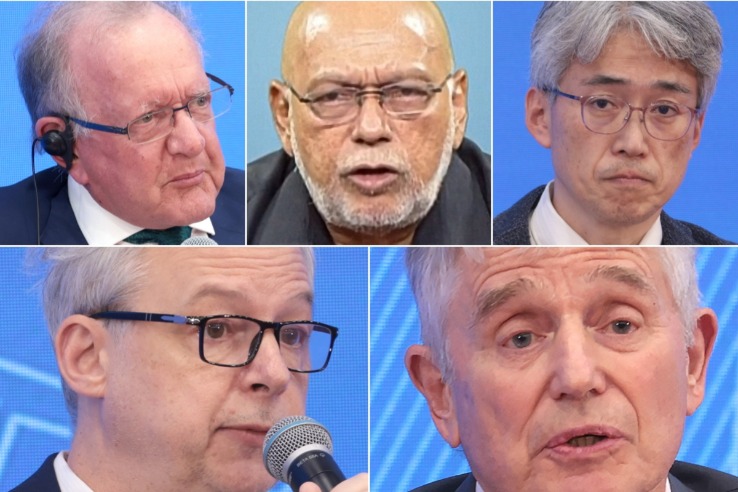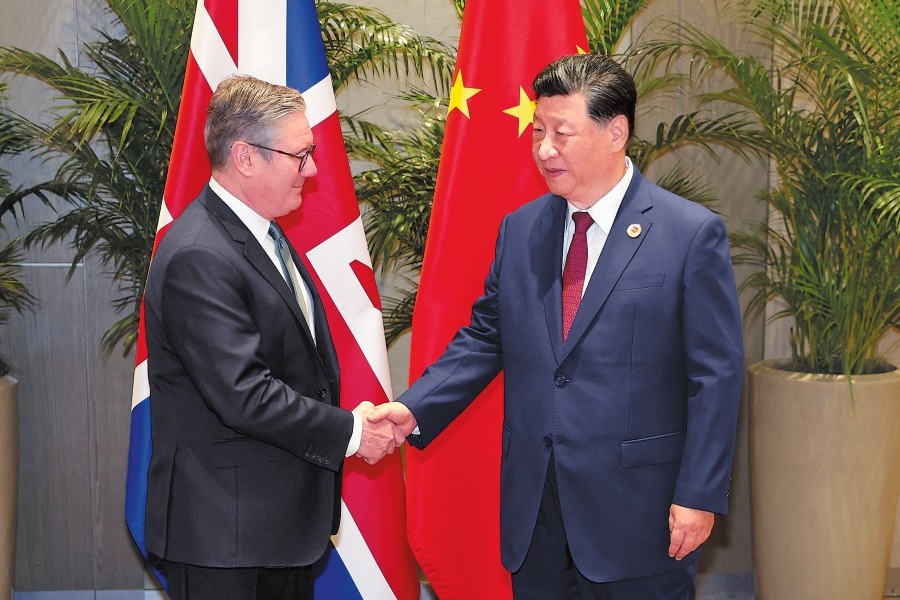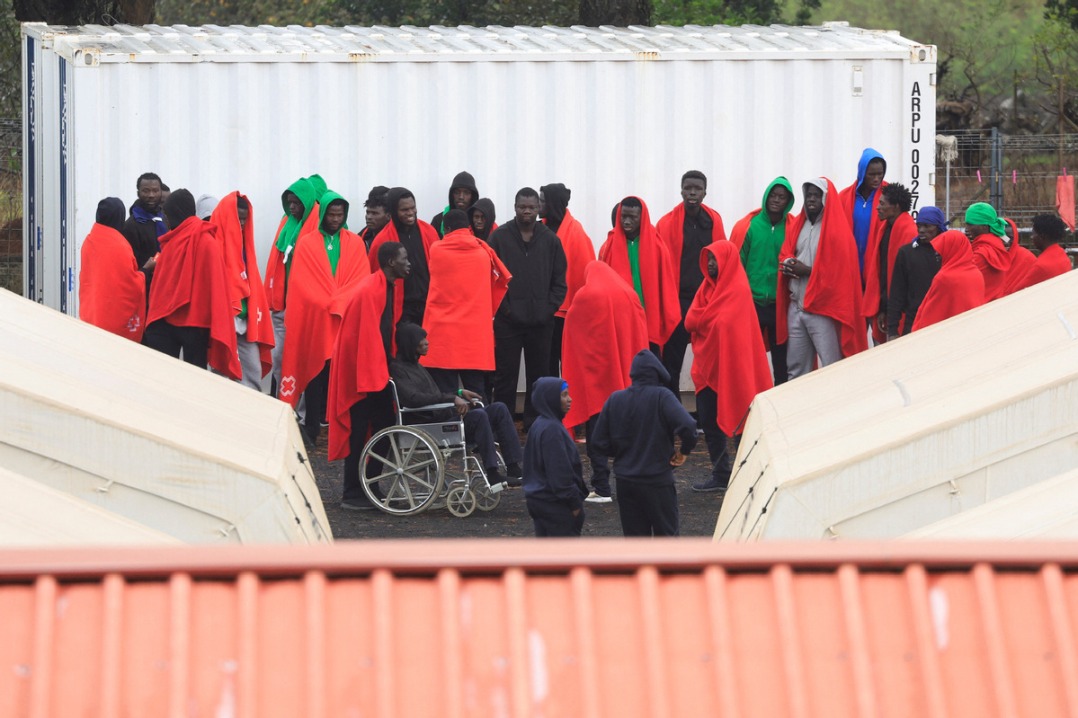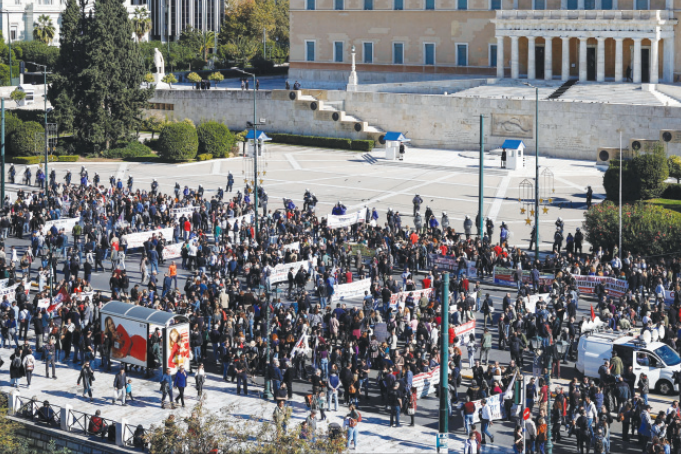Arab quartet ready for talks with Qatar if it meets demands

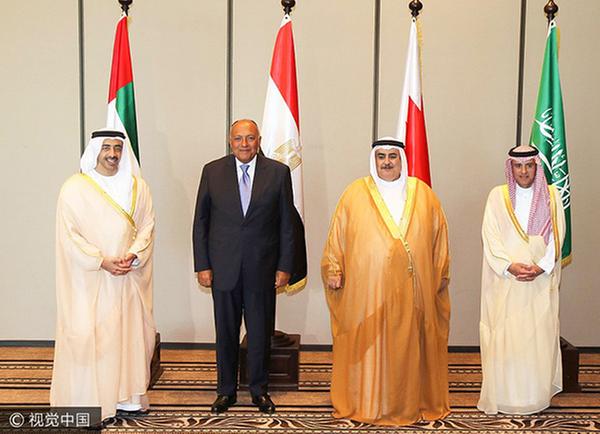 |
| Minister of Foreign Affairs of the United Arab Emirates Abdullah bin Zayed Al Nahyan (L), Saudi Arabian Foreign Minister Adel bin Ahmed Al-Jubeir (R), Foreign Minister of Egypt Sameh Shoukry (2nd L) and Foreign Minister of Bahrain Khalid bin Ahmed Al Khalifa (2nd R) pose for a photo before their meeting in Manama, Bahrain on July 30, 2017. [Photo/VCG] |
MANAMA - The Saudi Arabia-led Arab quartet on Sunday expressed preparedness for talks with Qatar, while insisting that Doha must meet their demands.
"We reiterate the importance of Qatar's compliance with the 13 demands outlined by the four states," said a joint statement released by the foreign ministers of Saudi Arabia, the United Arab Emirates (UAE), Bahrain and Egypt after a meeting.
Speaking at a televised joint news conference, Bahrain's Foreign Minister Sheikh Khalid bin Ahmed Al Khalifa said the four countries are ready for dialogue with Qatar if it announces its "sincere willingness" to stop funding terrorism and extremism, halt interference in other countries' foreign affairs, and respond to the 13 demands.
"We are ready to have a dialogue provided the 13 conditions are met by Qatar," said Sheikh Khalid.
Saudi Foreign Minister Adel Al Jubeir said their demands "cannot be negotiated," adding steps taken by his country along with the UAE, Bahrain and Egypt were "sovereign and within international accords."
On the issue of Qatari Hajj pilgrims, Al Jubeir said they are welcome by Saudi like pilgrims from any other country.
"Kingdom of Saudi Arabia does not accept politicization of the pilgrimage, which is a religious act," he said. "We will welcome Qatari pilgrims like other Muslims."
He blasted Iran for trying to exert influence by benefitting from the situation in the Gulf.
"Any country that has dealt with Iran has a negative consequence, and if our brothers in Qatar think they will reap any benefits with Iran then they did not assess the situation properly," he said.
UAE Foreign Affairs and International Cooperation Minister Sheikh Abdulla bin Zayed Al Nahyan said all measures taken by four states were within international laws and "essential to deter the scourge of terrorism which affected stability of other countries."
The Saudi-led quartet cut diplomatic ties with Qatar and imposed a blockade on the tiny rich Gulf nation on June 5, citing Doha's support of terrorism and extremism, interfering in their internal affairs and seeking closer ties with Iran, a Saudi rival.
















